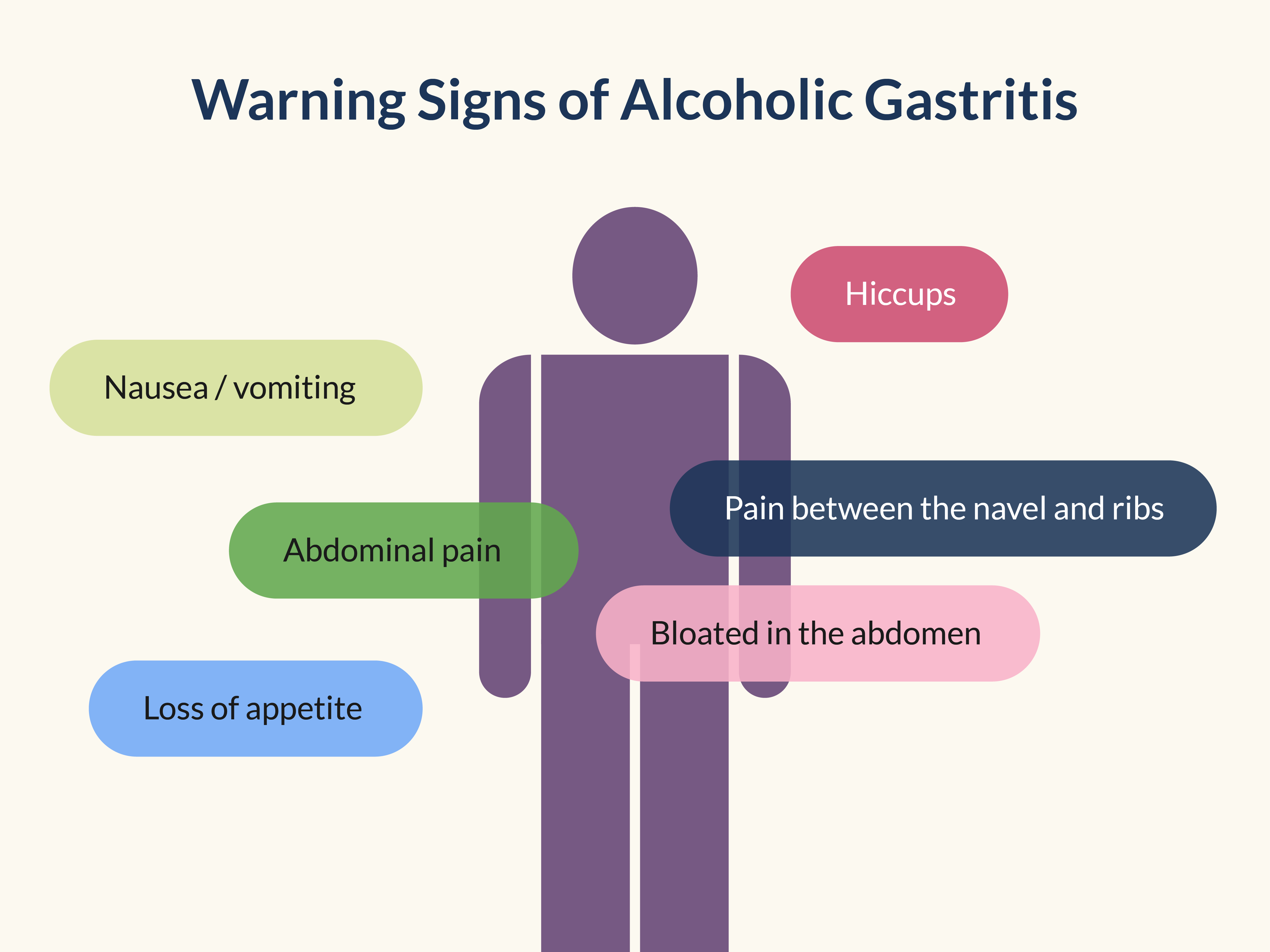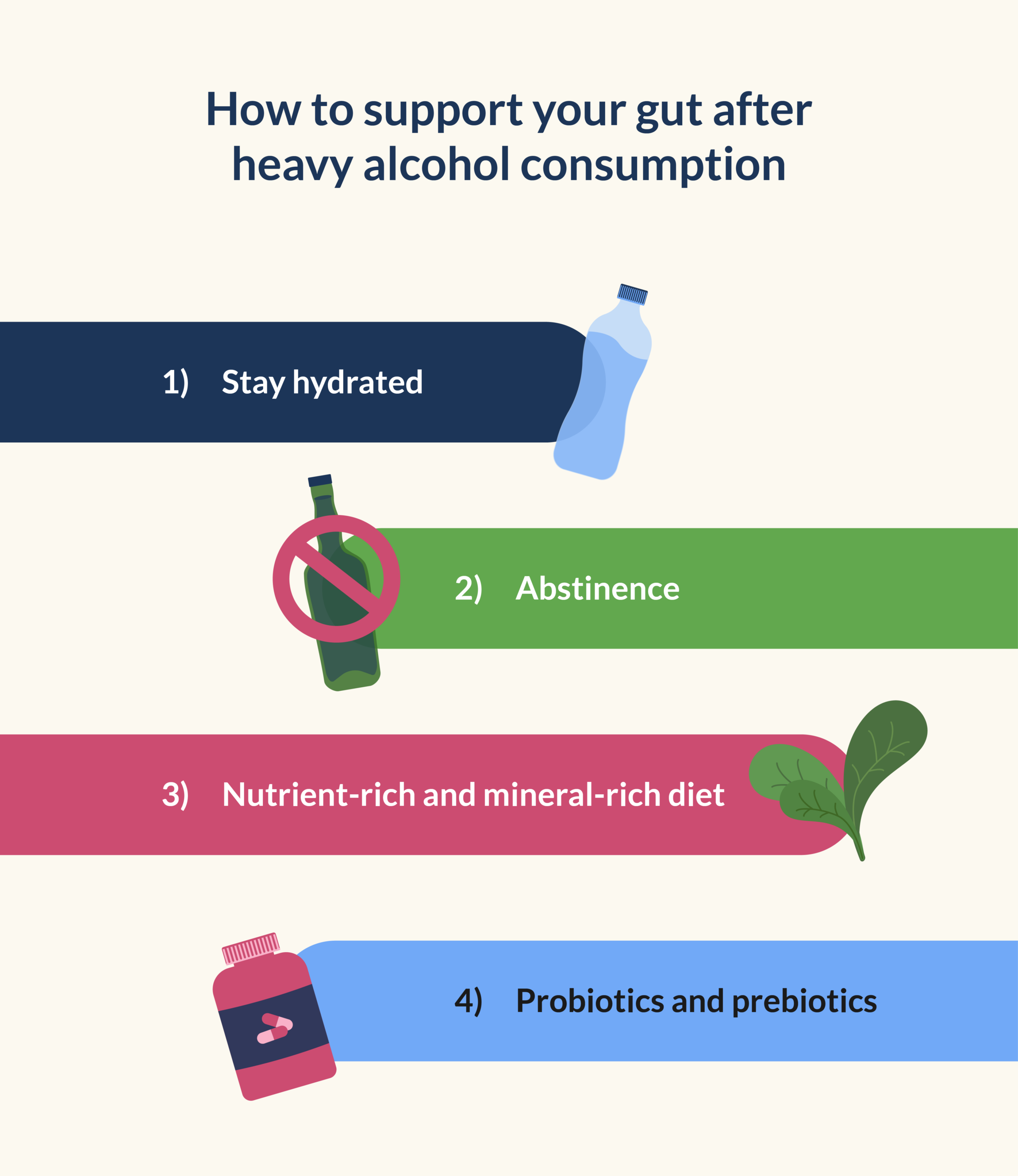Individuals who consume alcohol frequently or often partake in binge drinking are at a greater risk of gastrointestinal issues. From inflammation and bloating to ulcers and gastrointestinal bleeding, the gut often bears the brunt of excessive drinking. If you or someone you love is experiencing the effects of alcohol on the digestive system, here is a guide on how to recognize the symptoms and what to do to restore gut health after alcohol-induced damage.
How Alcohol Does to the Gut
When alcohol enters your system, it starts interfering with your digestive tract almost immediately. It can irritate the stomach lining, disrupt the balance of gut bacteria, impair the absorption of nutrients, and weaken the mucosal barrier that protects your gastrointestinal (GI) tract. This irritation can lead to a cascade of digestive issues — especially with frequent or heavy use.
Additionally, alcohol increases acid production in the stomach, which can result in gastritis or exacerbate existing gastrointestinal conditions. Over time, repeated exposure may lead to chronic inflammation or even permanent damage to the digestive tract.
Gastrointestinal Symptoms from Alcohol Use
Alcohol-related digestive symptoms can vary in intensity and frequency depending on the amount and duration of drinking. Common symptoms include:
- Bloating and gas
- Stomach cramps or pain
- Nausea and vomiting
- Diarrhea or constipation
- Acid reflux or heartburn
- Loss of appetite
Some symptoms may appear shortly after drinking, while others might develop with long-term use.

Alcohol Gut Inflammation Symptoms
Chronic alcohol use often causes inflammation of the gut, a condition sometimes referred to as “alcoholic gastritis.” This inflammation can present with the following symptoms:
- Burning sensation in the stomach
- Frequent indigestion
- A feeling of fullness even when eating little
- Sharp abdominal pain
- Vomiting blood or material that looks like coffee grounds (a sign of bleeding)
Inflammation doesn’t just make you uncomfortable — it also paves the way for more serious gastrointestinal problems if left untreated.
Inflammation and Damage to the GI Tract
Continued alcohol exposure weakens the gut lining and can lead to a condition called “leaky gut,” where toxins and bacteria pass through the intestinal wall into the bloodstream. This increases the risk of systemic inflammation and contributes to other chronic health problems like liver disease, autoimmune disorders, and mood disturbances.
Damage to the GI tract may also interfere with your body’s ability to absorb vital nutrients, including B vitamins, folate, and iron — leading to malnutrition and related health concerns.
Gastrointestinal Bleeding from Alcohol
Perhaps one of the most dangerous complications of alcohol-related gut damage is gastrointestinal bleeding. This can occur when ulcers form in the stomach or small intestine, or when the esophagus becomes inflamed or torn — particularly in people with advanced liver disease.
- Black, tarry stools
- Vomiting blood or dark material
- Lightheadedness or fainting
- Low blood pressure
GI bleeding is a medical emergency and should be treated immediately.
Long-Term Consequences of Alcohol on the Digestive System
Chronic alcohol consumption is linked to numerous long-term gastrointestinal issues, including:
- Chronic gastritis
- Peptic ulcers
- Pancreatitis
- Increased risk of GI cancers (especially esophageal, stomach, and colon cancer)
- Liver disease and cirrhosis, which indirectly impact gut health
Long-term digestive problems can lower your quality of life and complicate the treatment of other medical conditions.
How to Restore Gut Health After Alcohol
There are several actionable ways individuals can help to restore their gut health after alcohol. However, issues with the digestive system should be taken seriously. If alcohol caused harm to your gut health, it may also be best to seek help from a medical professional to ensure that there is no serious damage that is left untreated.
To support gut recovery, the biggest thing to do is stop consuming alcohol. The biggest culprit to gut health and gastrointestinal issues is the alcohol itself, when it comes to those suffering from alcohol abuse. Quitting alcohol can immediately benefit the body, which can greatly improve overtime.
In addition to quitting alcohol, it’s important to restore the body through a gut-friendly diet and proper hydration. Alcohol consumption can dehydrate and lead to nutritional and mineral deficiencies. For this reason, maintaining a healthier diet after quitting alcohol can be crucial to improving the body’s overall health.
Consult with a healthcare provider to address gastrointestinal symptoms. Some medical professionals may recommend a probiotic or prebiotic to restore gut flora. They can also provide a patient with medical examination to determine if the body is lacking specific nutrients that could be key to formulating the healthiest diet. Not every patient is the same, as not everyone’s alcohol consumption and body are the same. So, lifestyle changes may look different in each patient.
An alcohol addiction treatment program works with individuals suffering from alcohol abuse to not only address the addiction itself but also to improve the body’s healing after frequent alcohol consumption.










